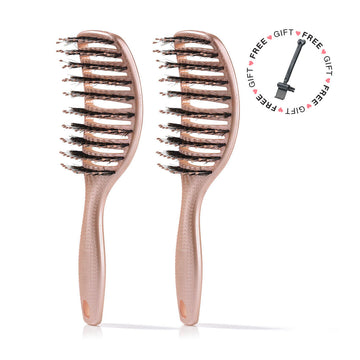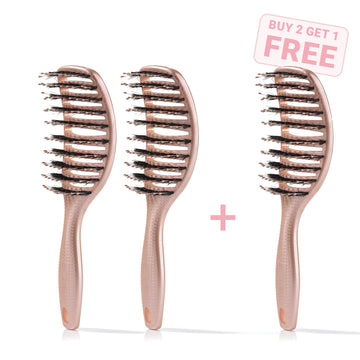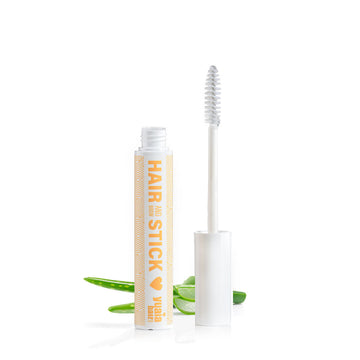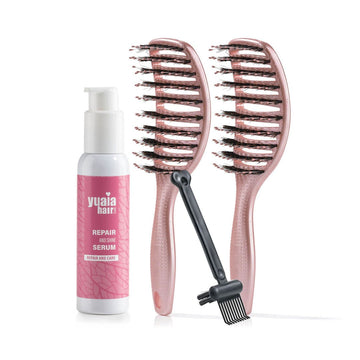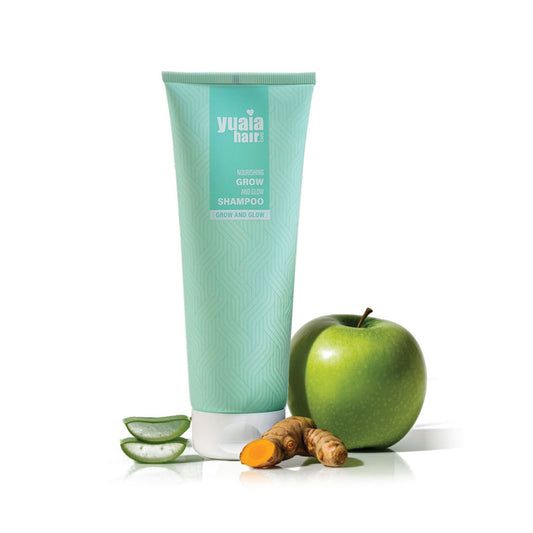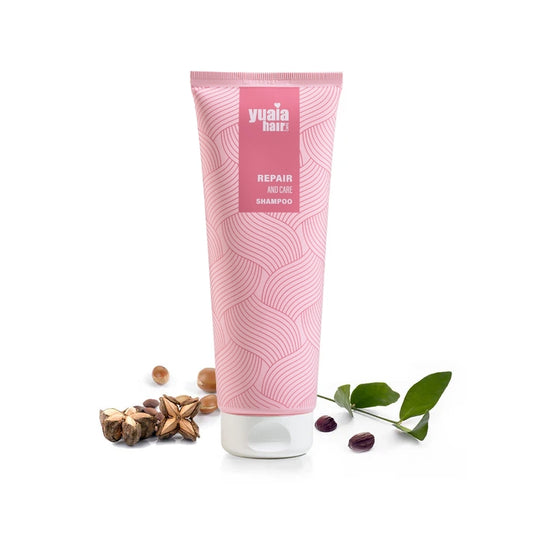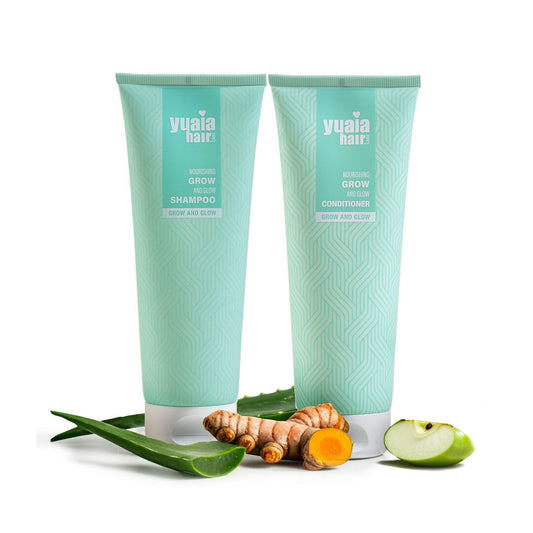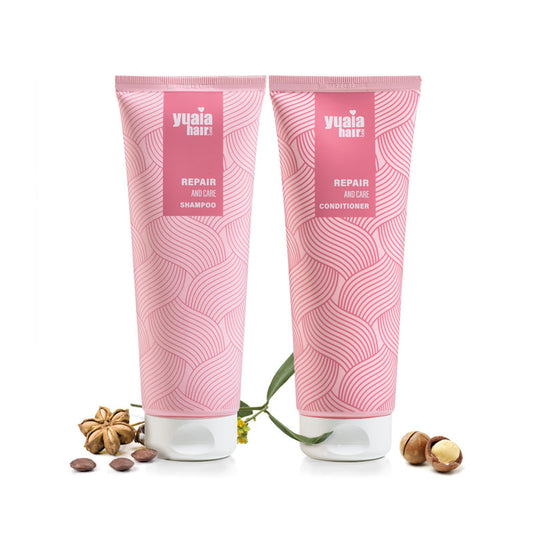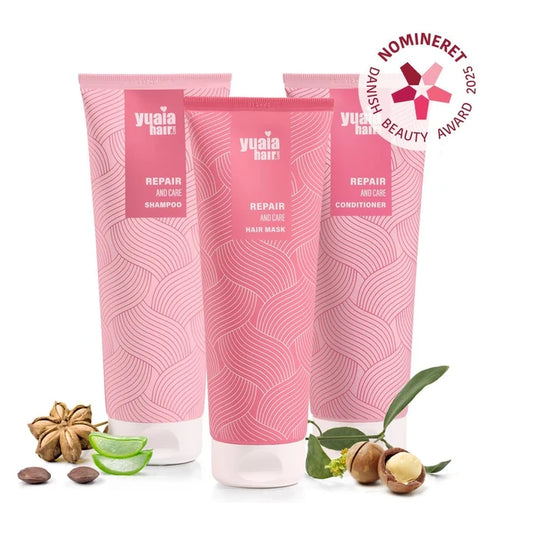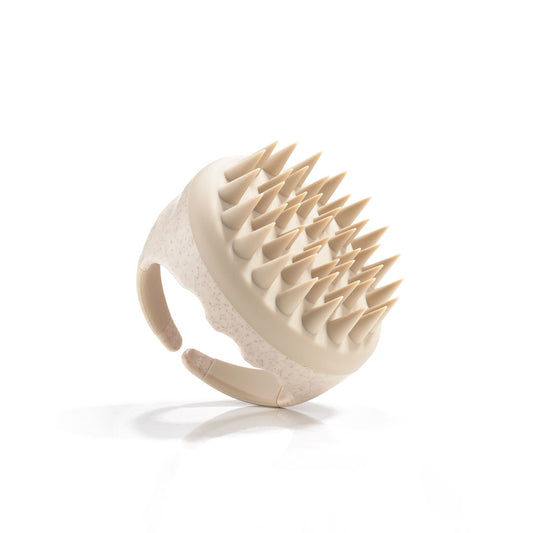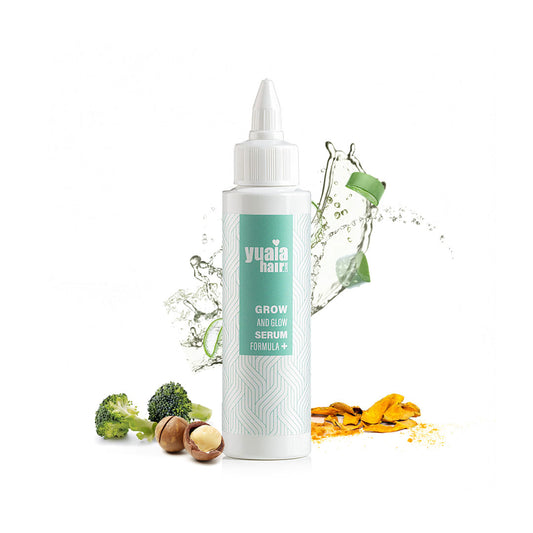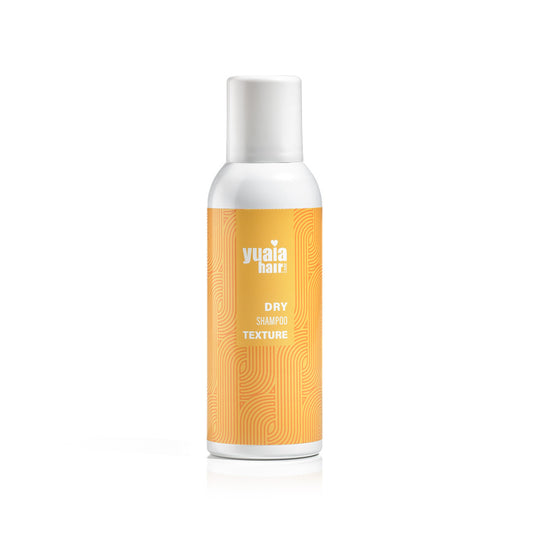Do I need to get used to using a sulfate-free shampoo?
When it comes to switching from a sulfate-containing shampoo to a sulfate-free shampoo, you should expect an adjustment period. Your locks may have become accustomed to sulfates and silicones, and they may react differently to the natural ingredients in a sulfate-free shampoo. It's important to give your hair a chance to adjust to the new routine.
In the beginning, you may notice that your hair feels slightly different. It can take time to get used to the cosmetic experience that comes with natural products instead of the synthetic alternatives. Some people find that their hair feels heavier or even a little greasy at first, while others may notice that their hair feels drier or more frizzy. This may be because a sulphate-free shampoo doesn't remove natural oils in the same way as sulphate-containing products.
It's important to be patient and give your hair time to get used to the new formula. It's recommended to use a sulfate-free shampoo for at least two weeks before drawing conclusions about its effectiveness. During this time, you may also want to experiment with different brands and formulas of sulphate-free shampoos to find the one that best suits your specific needs. Remember that each person's hair is unique and customisation can vary from person to person.
Tips when switching to sulphate-free shampoo
Changing your shampoo habit from sulphate-based to sulphate-free may take a little adjustment, but it's a step in the right direction for healthier hair and a more eco-friendly lifestyle. Here are some helpful tips for a smooth transition:
Read the labels: Carefully scrutinise the ingredients list on a sulfate-free shampoo to make sure it doesn't contain other harmful chemicals you want to avoid.
Adjust the amount: You may not need as much sulfate-free shampoo as you're used to with sulfate-containing shampoos. Start with a small amount and increase as needed.
- Use a sulphate-free conditioner: Consider using a matching sulfate-free conditioner to give your hair extra care and moisture.
- Avoid over-washing: Avoid washing your hair daily as this can strip it of its natural oils. Try washing it every other day or as needed.
- Be patient: Your hair may take some time to get used to the new routine, so be patient and give it time to adjust.
- Consult a professional: If you have specific hair issues or concerns, you may want to consult a hairdresser or hair care expert for advice.
- Test different brands: Try different sulphate-free shampoo brands and variants to find the one that best suits your needs and preferences.
Switching to a sulphate-free shampoo can be beneficial for both your hair and the environment, so follow these tips to make the transition as smooth as possible.
The best sulfate-free shampoo - Lotte's product recommendation for you
Hair care is very close to our hearts. That is why we have developed a really delicious sulfate-free shampoo, Grow and Glow Shampoo. The shampoo is free of harmful sulfates (SLS and SLES) - and is therefore a milder alternative to washing your hair. With its unique nurturing and growth-promoting properties, it ensures a balanced scalp and healthy hair growth.
In addition, it has fantastic restorative properties for: dry, damaged and fragile hair. With its content of Curcuma Longa and Amaranthus seeds extra, studies have shown: a reduction of hair loss of up to 89% after 150 days of use and an increase in the diameter of the hair shaft by 11.3%. In other words, you give your hair the necessary care that both nourishes and strengthens it, while leaving your hair shiny. If you want to read more about the ingredient Capilia Longa and its results, read here.
Sulfate-free shampoo is a popular trend in the hair care industry, and it has its benefits. But before switching to sulfate-free shampoo, it's important to do your research to see if it's right for your hair type. If you have questions or concerns about switching to sulfate-free shampoo, you can always ask us for advice.

Environmental benefits of a sulphate-free shampoo
Choosing a sulphate-free shampoo has environmental benefits. By switching to sulphate-free shampoo, you can:
- Reduce hazardous chemicals: Avoid harmful chemicals that can pollute the aquatic environment.
- Protect ecosystems: Minimise the impact on local ecosystems as a sulfate-free shampoo uses gentler ingredients.
- Support sustainability: Some sulphate-free shampoo brands are committed to sustainable production methods and packaging.
- Save water: Sulfate-free shampoos require less water during rinsing and contribute to water conservation.
- Reduce plastic waste: Choose sulphate-free shampoos in reusable or recycled bottles to reduce plastic waste.
Myths about sulphate-free shampoos
Sulphates in shampoos have become the subject of many myths and misconceptions that can create confusion about their real effects on hair. It's important to clarify these myths and present a more nuanced understanding of sulphates and sulphate-free shampoos. Here are some of the most common myths and the real truth behind them:
Myth 1: Sulphates are necessary to get your hair clean.
Truth: While sulfates are powerful ingredients and effective at removing oil and dirt, there are several sulfate-free alternatives that can also provide a thorough cleanse. This means you don't have to rely on sulfates for clean hair.
Myth 2: Sulfates are the sole cause of dryness and damage to hair.
Truth: While sulphates can contribute to dryness and colour loss, there are other factors such as heat styling, frequent hair washing, and adverse weather conditions that can affect hair health. However, using a sulphate-free shampoo can help minimise dryness and damage.
Myth 3: A sulfate-free shampoo doesn't lather and doesn't cleanse well enough
Truth: Lathering is not the telltale sign of a proper wash. A sulfate-free shampoo is specially formulated to thoroughly cleanse hair without using sulfates or foaming agents. They still remove dirt, oil and product residue effectively and can leave your hair clean and fresh without drying it out.
Get a 10% discount code sent to you
Receive the best tips and tricks for your hair from Lotte and Nanna 🥰
Frequently asked questions about sulphate-free shampoos
What is sulphate and why should I avoid it in my shampoo?
Answer: Sulphates are an ingredient found in many shampoos and other hair products. They can remove dirt and oil from hair, but some sulphates can be too strong and damage the hair's natural oils. This can lead to dry and damaged hair. Therefore, you should consider avoiding sulphates in your hair products.
How can I recognise sulphates in my shampoo?
Answer: You can find sulphates in the ingredient list of your shampoo. Some common sulphates include Sodium Laureth Sulfate (SLES), Sodium Lauryl Sulfate (SLS), Sodium Lauryl Ether Sulfate and other similar ingredients. These sulphates are often high on the ingredient list.
Are sulphates dangerous?
Answer: Sulphates are not dangerous to your health, but they can be irritating to the hair and scalp. Some sulphates can strip the natural oils from the scalp and skin, which can lead to dry or oily hair, depending on your hair type.
Who should use a sulphate-free shampoo?
A: Everyone can benefit from using a sulfate-free shampoo, especially if they have damaged hair, curly hair, coloured hair, dry hair or a sensitive scalp. A sulfate-free shampoo is milder and can prevent damage to the hair.
How do I choose good sulphate-free hair products?
Answer: When looking for sulphate-free hair products, avoid products with sulphates such as Sodium Lauryl Sulfate, Sodium Laureth Sulfate and the like. Look for products that contain milder ingredients like Coco-Glucoside, Lauryl Glucoside and other sulphate-free ingredients. It's also a good idea to choose products without parabens and fragrances for extra care for your hair.
Can there be negative side effects from using a sulphate-free shampoo?
Answer: There are usually no negative side effects from using a sulphate-free shampoo. Some people may find that a sulfate-free shampoo does not lather as much as regular shampoo, but this does not affect the effectiveness of the product.
How do I properly wash my hair with a sulfate-free shampoo?
Answer: Wash your hair with warm water to open the hair strands, massage a sulphate-free shampoo into the scalp for 1-2 minutes, avoid brushing your hair until it is completely dry and avoid washing your hair every day to preserve the natural oils.
Which sulphate-free shampoo is recommended?
Answer: A recommended sulphate-free shampoo is "Grow and Glow Shampoo," which contains conditioning ingredients and is gentle on the hair. It's important to find a sulphate-free shampoo that suits your specific needs and hair type.
 2-5 day delivery
2-5 day delivery
 25.000+ satisfied customers
25.000+ satisfied customers
 Satisfaction Guarantee
Satisfaction Guarantee









